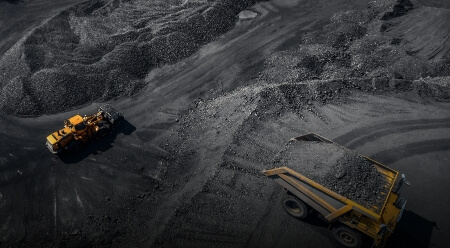
Coal washing or beneficiation is a process of mechanical separation of impurities (ash) from coal, making it suitable for particular use. During beneficiation of raw coal, four products viz. washed coal, Middling/washed power coal, fines/slurry and rejects are produced based on the technology employed for beneficiation. In Indian context, coking coal washeries are three product washeries producing clean coal, middling and rejects whereas non-coking coal washeries are normally two products producing washed (power grade) coal and rejects.
Coal of G-10 & G-11 grade has lesser ash content (30-36%) and bulk of it may not be candidate for washing with ash content not exceeding 34%. However, coal of G12 and inferior grade will require washing that has the benefits of enhancing energy content while having the potential to reduce emissions.
“Economic & Environmental Impact of Coal Washing in India” are summarized below:
- The coal beneficiation process results in GCV improvement of coal which in turn leads to reduction of coal requirement to generate same quantum of electricity as well as savings in coal transportation cost. The benefit due to washed coal transportation will increase with increasing distance between the generating station and loading point at washeries.
- Coal washing yields operational benefits to power stations in terms of better flame stability, reduced operation and maintenance cost, less handling cost of ash, less environmental pollution, increase in PLF, improved life of boiler auxiliaries such as burners and mills, etc
- Use of washed coal leads to better utilization of capacity of railway wagons and rail transportation network, environmental benefits in transportation of beneficiated coal with less ash content from the washery to power plant are other intended benefits.
- An analysis of the use of grades of coal for thermal power generation in India reveals that it primarily ranges from G7 to G14. However, G11 is found to have the highest consumption
Ministry of Coal has issued a comprehensive policy for handling and disposal of coal washery rejects with an aim to regulate the use of coal rejects to minimize the pollution footprint in line with Rule-21 of Solid waste Management Rule-2016 facilitating conservation of energy through environment friendly extraction of energy from coal washery rejects.
Coal Controller Organization is responsible for issuing the permissions for disposal of coal washery rejects (having GCV less than 2200 K Cal/Kg), collection of statistics, monitoring and control in accordance with the policy issued by MoC on 27.05.2021.

